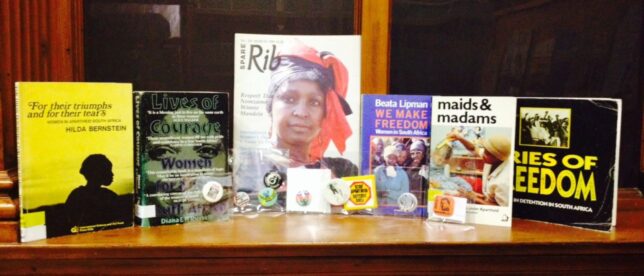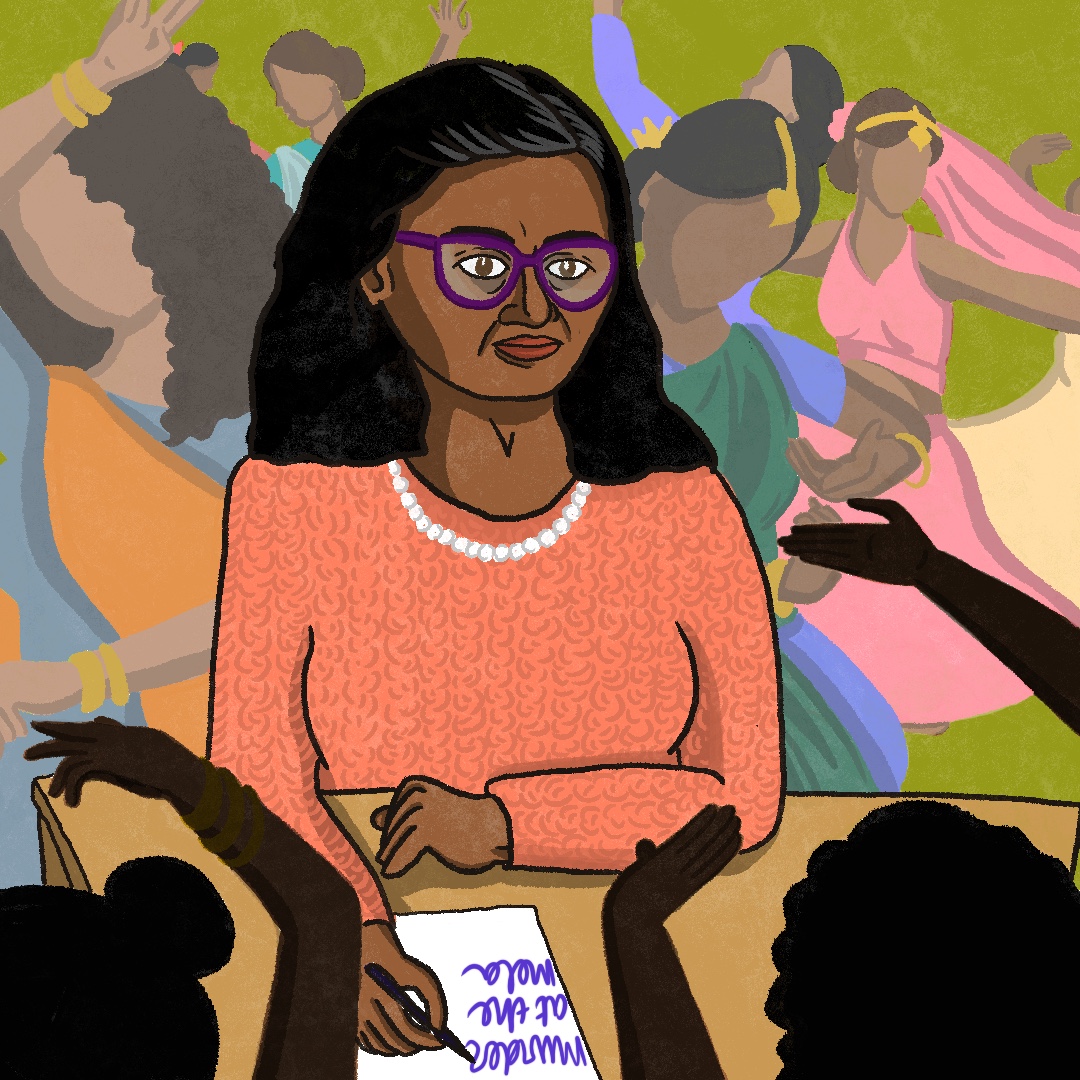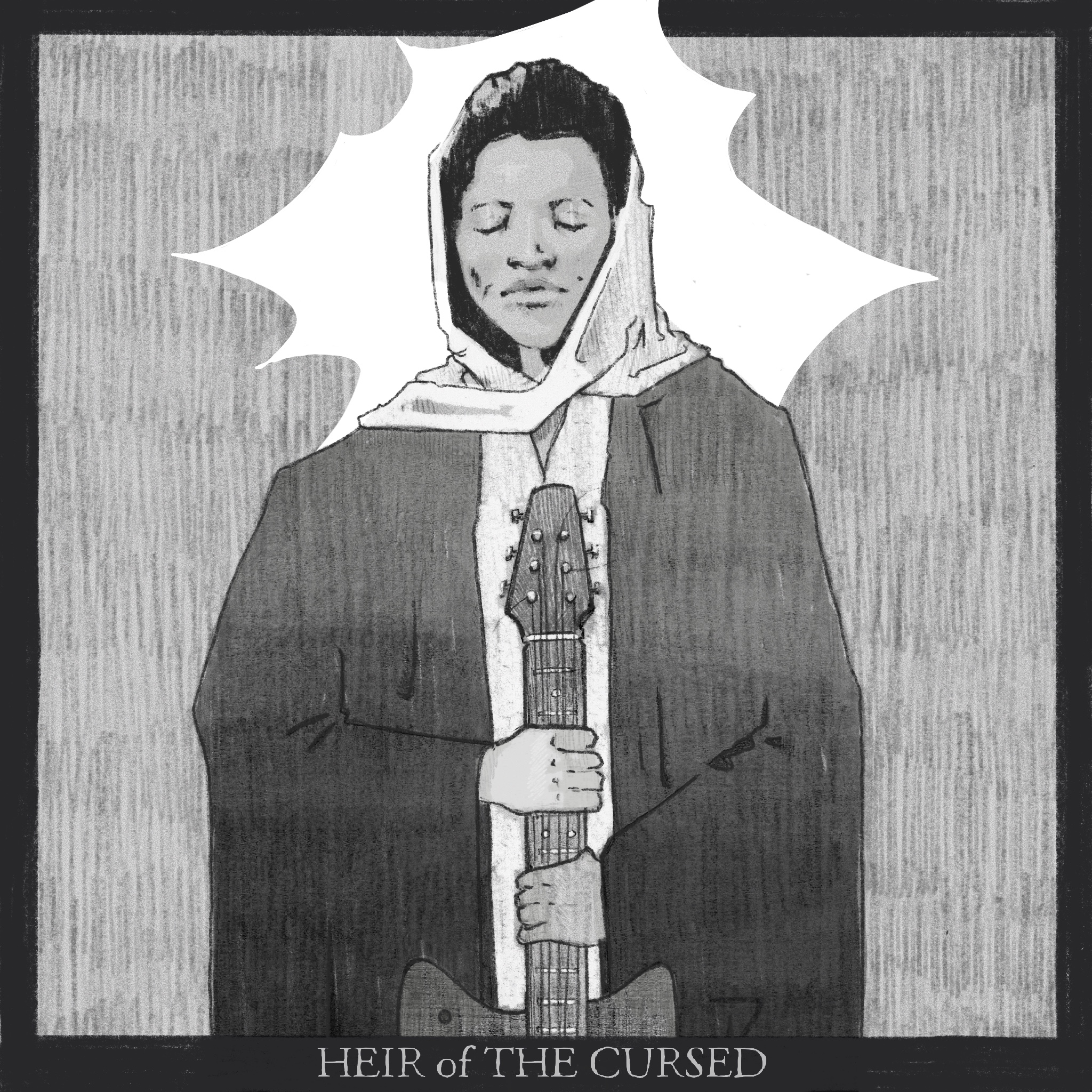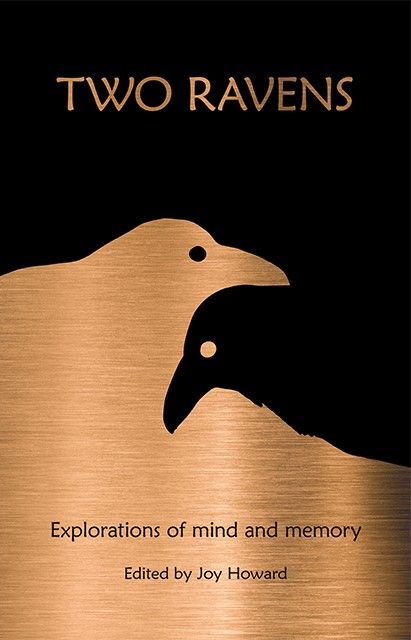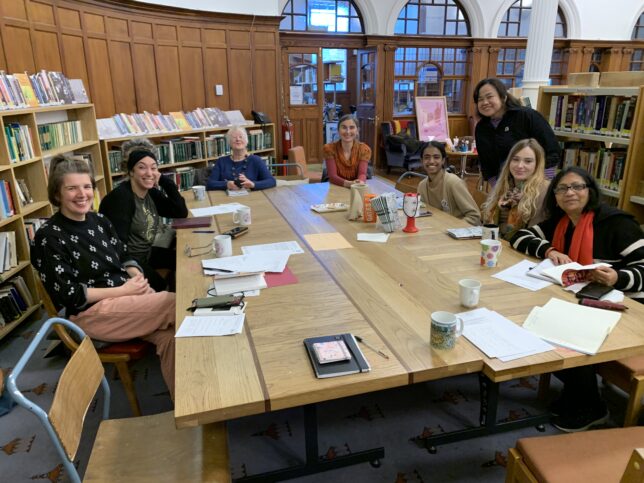Despite great sadness at the death of Nelson Mandela on 5th December 2013 it has, of course, invited fresh dialogue about his life and achievements, and the very nature of apartheid in South Africa. It also provides us with an opportunity to re-examine the role that Glasgow, and particularly the women of Glasgow, played in championing both the anti-apartheid movement and Mandela as an individual.
In 1981, while Mandela was still imprisoned on Robben Island under the South African apartheid regime, he was awarded the Freedom of the City of Glasgow. Glasgow was the first city to confer this honour on Mandela, though others, including Aberdeen, Dundee and Sheffield, would later follow suit. In 1986, what had been St George’s Place in Glasgow was renamed ‘Nelson Mandela Place’ – in spite of the fact that this was where the South African consulate was located. It is remarkable that these honours were conferred before Mandela’s eventual release from imprisonment on 11th February 1990, at a time when his status as a great hero and champion of racial equality was far less assured. When, on 3rd October 1993, he eventually visited Glasgow to acknowledge the honours conferred upon him by the city, over 10,000 Glaswegians gathered in George Square to hear him speak.
It is clear that the people of Glasgow felt profound affinity with Mandela and with anti-apartheid values. The Anti-Apartheid Movement (AAM) had been prominent in Glasgow since the early 1960s, and when it was formally organised (along with the AAM in Edinburgh) into a Scottish Committee in 1989, the views and involvement of both women and trade unionists were particularly forthcoming and highly valued. Boycotts of South African goods were encouraged and promoted by the Scottish Committee, as well as the production of large amounts of literature and pamphlets providing information on apartheid and how the Scottish people could support anti-apartheid on a personal and economic level.
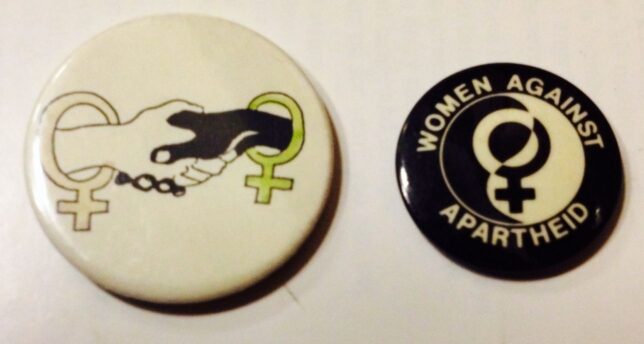
Glasgow Women’s Library has an extensive collection of books, periodicals and archive materials which reveal in fascinating and harrowing detail what apartheid really meant for women in South Africa, and how their experience of the regime was so distinct from that of their fathers, husbands and sons. The materials available also indicate the way in which women here in Glasgow viewed the persecution of their sisters in South Africa. It is perhaps natural that we should tend to view apartheid purely as a racially segregative aberration, however coverage and literature from the time indicate not only that the female experience of apartheid was exacerbated by their gender, but that both better-off white women in South Africa and women here in Glasgow were aware of, and moved to action by, this additional gender-based persecution of female, black South Africans.
Glaswegian affinity with anti-apartheid values appears to have been rooted both in a common sense of fair play and resistance to oppression of the less well-off, and also in a prevailing belief amongst women that they could only reach their potential under a government which indulged neither racial nor gender-based discrimination. Glasgow has a proud history of trade unionism, working class rights and strong female political participation. When one considers this, the wonderfully demonstrative Glaswegian response to apartheid seems entirely typical of the city’s character.
The books which GWL holds on this topic include Beata Lipman’s We Make Freedom: Women in South Africa (1984), in which she discusses topics like the support of black women by white women in South Africa during apartheid, and gives first-hand accounts of inspirational women including Helen Joseph, Winnie Mandela, Sheena Duncan, Nadine Gordimer and Rita Ndzanga. Lipman writes particularly revealingly on the difficult questions posed to international feminism as a result of apartheid, and the way in which white and black women within South Africa and elsewhere were forced to consider their own positions within the sphere of their own rights and responsibilities in the world. GWL also holds materials which cover the activities of the Black Sash group – a group of white South African women who were moved to non-violent anti-apartheid action, disgusted at the treatment of their black sisters. The evidence points to great political awareness amongst women of all skin colours and social classes, both in South Africa and around the world.
If you would like to know more about the roles that women (and Glasgow) played in the anti-apartheid movement, be sure to visit Glasgow Women’s Library, where you can refer to several dedicated volumes as well as periodicals from the late 1980s and early 1990s. The Library also holds a collection of badges in its archive relating to anti-apartheid campaigns as part of the Badges of Honour project. If you would like to consult the archive, contact either Laura Stevens or Lindsey Short in the first instance.

